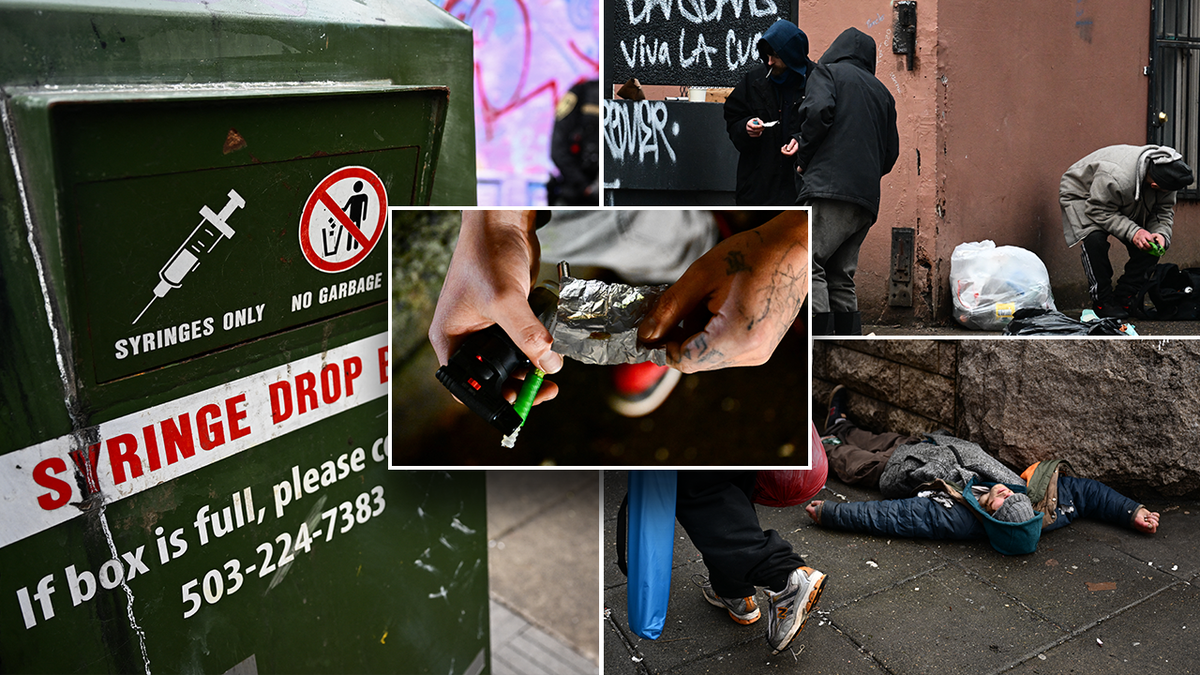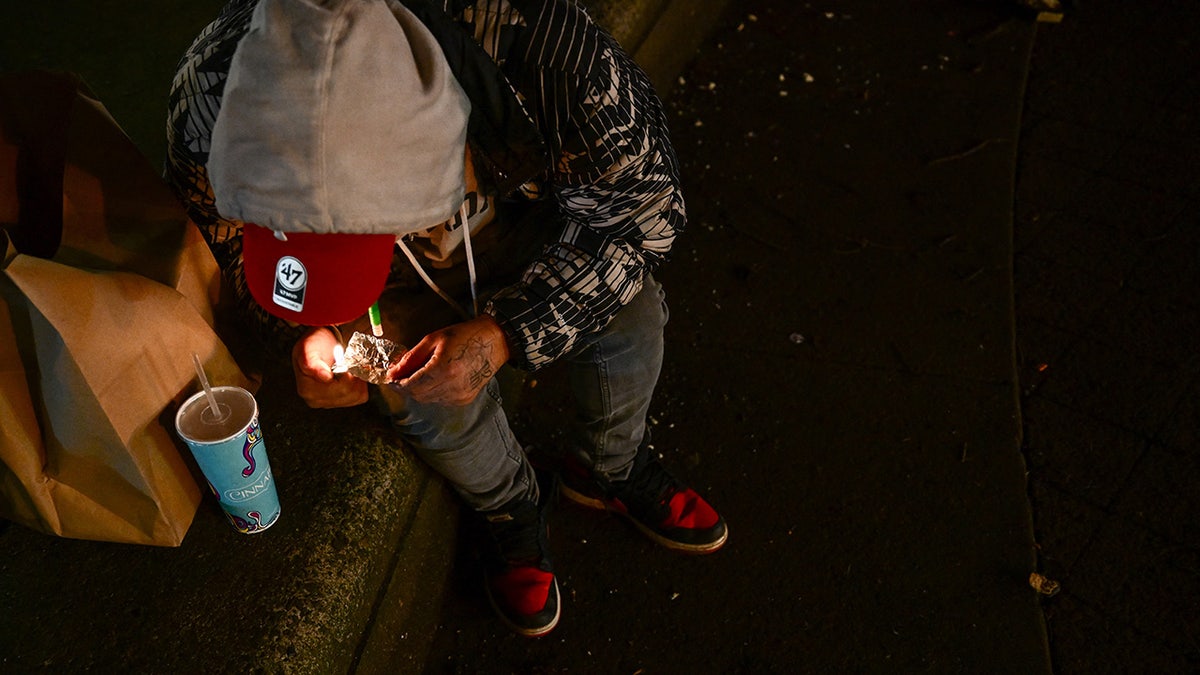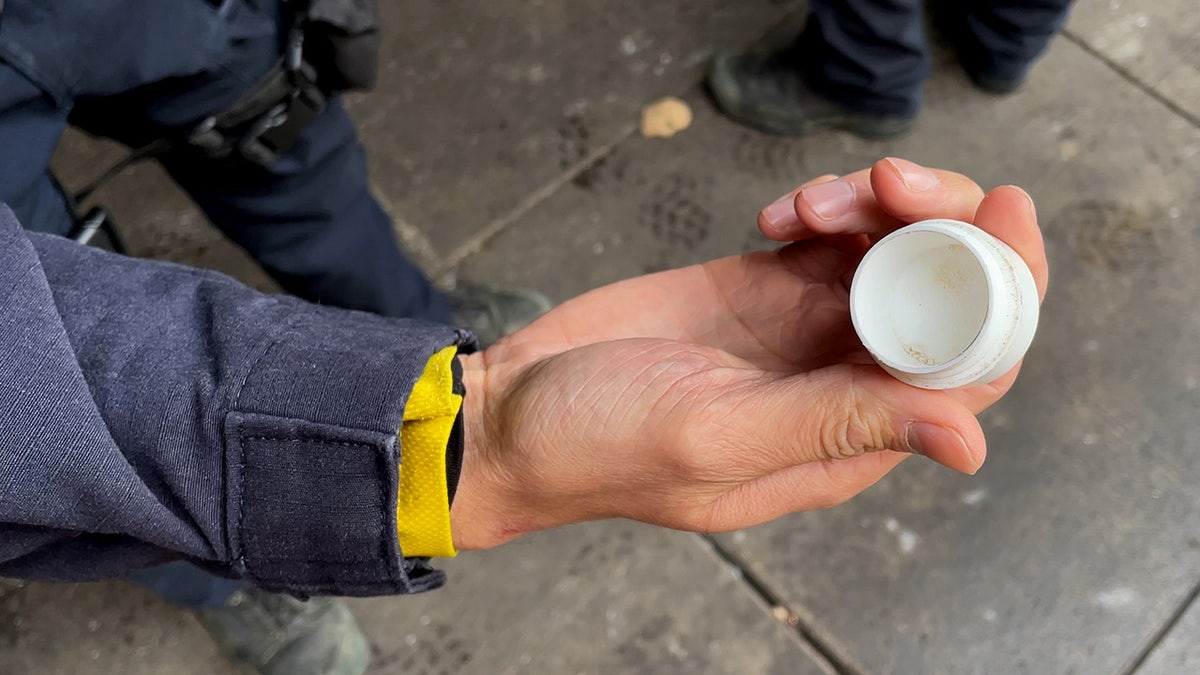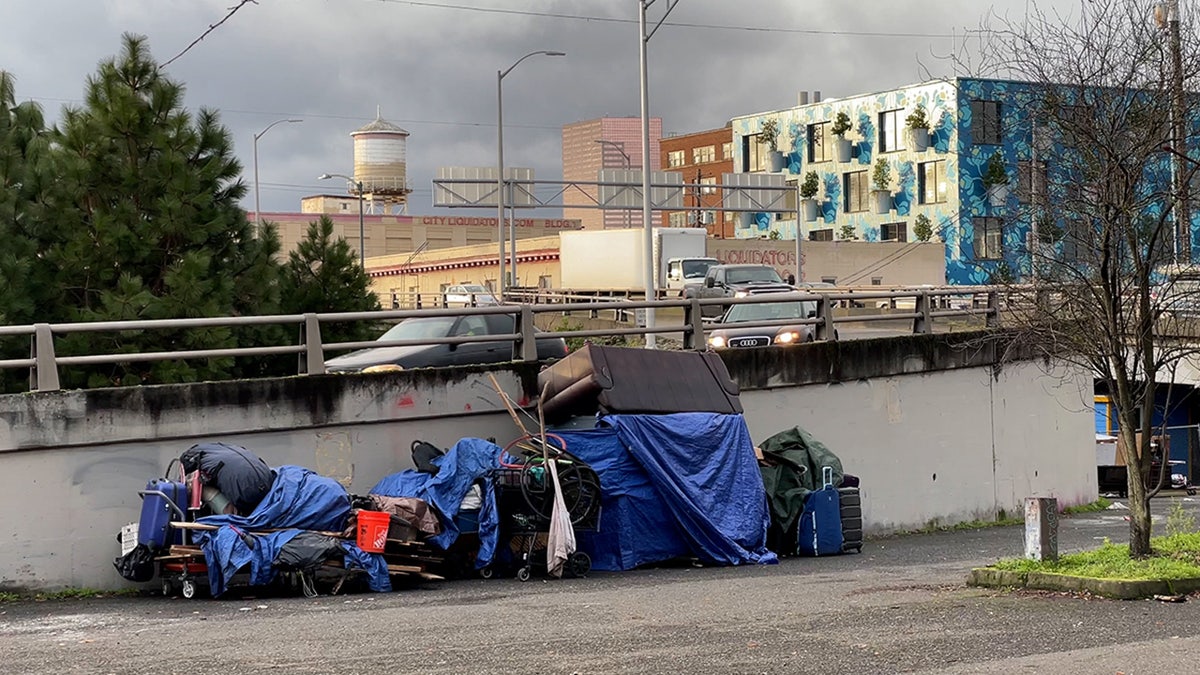Thousands of people have lost their lives to drugs in the name of ‘harm reduction’: National Police Assoc. spokesperson
Sgt. Betsy Brantner (ret.) says a lot of the homelessness and crime issues in the U.S. goes back to the ‘demonization’ of the criminal justice system.
Amid a massive uptick in overdose deaths, open-air fentanyl use and rampant homelessness, Oregon voters and lawmakers on both sides of the aisle are turning on a law that decriminalizes drug possession.
"What we have done is caused the death of literally thousands of people in the name of harm reduction. So, I think as voters, as Americans, as compassionate people, we need to take a hard look at what we've done and look at how we're going to fix it," National Police Association Spokesperson and retired Sgt. Betsy Brantner Smith told Fox News Digital.
Over the last several months, business owners, residents and law enforcement in the state have detailed stories of families grieving over the loss of their teenage sons and daughters, drug-addled people laying unconscious in the street and addicts turning to retail theft for a quick fix.
According to a study by the Centers for Disease Control and Prevention, Oregon had the largest year-to-year increase of fentanyl deaths in 2023, up 41% between September 2022 and September 2023.
CRISIS IN THE NORTHWEST: INSIDE ONE OF OREGON’S LARGEST HOMELESS CAMPS WITH A FORMER DRUG DEALER

Business owners, lawmakers and voters have expressed concern about homelessness, the fentanyl crisis and crime in Oregon. (Photo by Patrick T. Fallon /AFP/Getty images)
Federal data also shows that Oregon has experienced a staggering 1,500% increase in overdose deaths since the start of the COVID-19 pandemic—the most severe escalation in the United States.
In late January, Oregon leaders, including Gov. Tina Kotek, Portland Mayor Ted Wheeler and Multnomah County Chair Jessica Vega Pederson, joined together to declare a 90-day state of emergency in Portland's Central City to address rampant fentanyl use and related deaths.
"Our country and our state have never seen a drug this deadly and addictive, and all are grappling with how to respond," Kotek said in the release.
In a recent statement to Fox News Digital, Wheeler also expressed frustration with the ongoing crisis.
"It is extremely frustrating for us to take the steps that we believe, and, frankly, that we know we need to take as a municipal government to address open drug use or to address addiction or to address unsanctioned, dangerous and squalid camps in our community," Wheeler said. "And yet we don't have all of the tools we need at the municipal level to be able to get done what we need to have done."
The announcement came exactly three years after Measure 110, which decriminalized possession of hard drugs such as cocaine, heroin, methamphetamine and oxycodone, went into effect in Oregon.

National Police Association Spokesperson and retired Sgt. Betsy Brantner Smith. (Betsy Brantner Smith/Game of Crimes)
The law provided funding for addiction treatment and harm-reduction efforts by reallocating millions of dollars from the state's cannabis tax.
Possession of small amounts of hard drugs was reclassified as a civil violation: Offenders face a $100 fine, which they can avoid with a "health assessment" – a 24/7 phone service that will help determine what services an individual might need.
Despite these attempts to keep drug addicts off the streets and get them into rehabilitation programs, Smith noted that very few individuals took advantage of treatment. She suggested that the state government needs to go back to looking at "basic human behavior" and punish "abhorrent" drug crimes. Once in prison, those suffering from drug addiction can opt into a treatment program.
A report released by the Oregon secretary of state showed that each call to the hotline cost the state roughly $7,000 because of the lack of people using the service.
"When you take a look at what is euphemistically termed the compassionate approach to drug addiction, and you take any criminality out of it, you take really any punishment out of it and you're left with what Oregon is seeing right now," Smith said of the current situation in the state.
But she also urged lawmakers to look beyond the addiction issue and focus on homelessness, crime and where the supply of drugs, especially fentanyl, is stemming from.

A person smokes a foil of fentanyl on Park Avenue in downtown Portland, Oregon on Jan. 23, 2024. (Photo by Patrick T. Fallon/AFP via Getty Images)
"It's coming from primarily from Mexico, which comes from China. And we have got to make sure that we are not just looking at treatment, but we are looking at ridding this country of these dangerous drugs," Smith added.
In her view, people are beginning to wake up to the idea that it is not just a lack of housing causing these issues. Instead, it is an interplay between housing, severe drug addiction and mental illness that is leading people to live a life on the streets.
She also expressed concern about Measure 110, which Smith described as "anti-police" and "anti-law and order."
Her perspective is backed up by an Emerson College poll, in which 56% of 1,000 registered Oregon voters said they would support a complete repeal of Measure 110. An even larger number of voters (nearly two-thirds) said they would support the repeal of parts of Measure 110 to restore drug penalties.
In early February, lawmakers held a public hearing on Measure 110, where dozens of community members offered public testimony. One of the speakers was a 55-year-old police officer named Erin Anderson, working in a Portland suburb. The law enforcement officer told an emotional story of how a child died from an opioid overdose.
Lawmakers have also recently addressed changes to Measure 110 themselves.

A police officer holds a container with a small amount of suspected fentanyl powder in Portland, Oregon. (Hannah Ray Lambert/Fox News Digital)
"Inaction is not an option. This is another sobering reminder of why we have to act this session to keep our communities safe and save lives," Sen. Kate Liber, D-Beaverton, and Rep. Jason Kropf, D-Bend, said in a co-statement.
Rep. Cyrus Javadi, R-Astoria, added that drugs need to be recriminalized with "compassionate off ramps," and family members, as well as law enforcement, need proper tools to reduce the number of drug overdoses.
After leaving office, former Oregon Governor Kate Brown admitted the state's recovery from its deadliest wildfire season on record, a law enforcement focus on Portland riots following the murder of George Floyd and a program to disburse COVID-19 vaccinations created a "perfect storm" that hindered the rollout of Measure 110.
"This was a theory that was put into practice in a state that was probably one of the least prepared to be successful," Brown said.
‘FENTANYL NEXUS’: PORTLAND POLICE’S BIKE SQUAD FACES ‘EXPLOSION’ OF OPEN-AIR DRUG USE

Tarps and belongings line an empty parking lot in Portland, Oregon, on Jan. 10, 2024. (Hannah Ray Lambert/Fox News Digital)
Her successor, Kotek, vowed to fix issues with the initiative. Last July, she signed House Bill 2645, which allows for misdemeanor charges for those possessing more than 1 gram and less than 5 grams of fentanyl. A conviction could result in up to one year of jail time.
But Smith said the pandemic and the 2020 riots can no longer be blamed for drug and homelessness issues in cities across the country. A lot of these problems, she claimed, go back to the "vilification" of law enforcement and the "demonization" of the criminal justice system.
Nonprofits and lawmakers, she added, need to move away from the idea that drug use is a "victimless crime" to make substantial change.
CLICK HERE TO GET THE FOX NEWS APP
"We're going to have to force treatment through the laws," Smith said. "And so, if someone is convicted of, say, a felony possession of fentanyl, then they can choose whether to seek treatment. But whether they seek treatment or not, they're still going to be locked up and are presumably not going to be able to obtain those drugs."
The Oregon Governor's Office did not return Fox News Digital's request for comment.


